
What is Refraction of light Leverage Edu
I, The subject of this chapter is the reflection and refraction of light—or electromagnetic waves in general—at surfaces. We have already discussed the laws of reflection and refraction in Chapters of Volume I. Here's what we found out there: The angle of reflection is equal to the angle of incidence. With the angles defined as shown in.

Class 10 Light Reflection and Refraction Study Notes Leverage Edu
Example 3.6.1 3.6. 1. The diagram to the right shows the path of a ray of monochromatic light as it hits the surfaces between four different media (only the primary ray is considered - partial reflections are ignored). Order the four media according to the magnitudes of their indices of refraction. Solution.
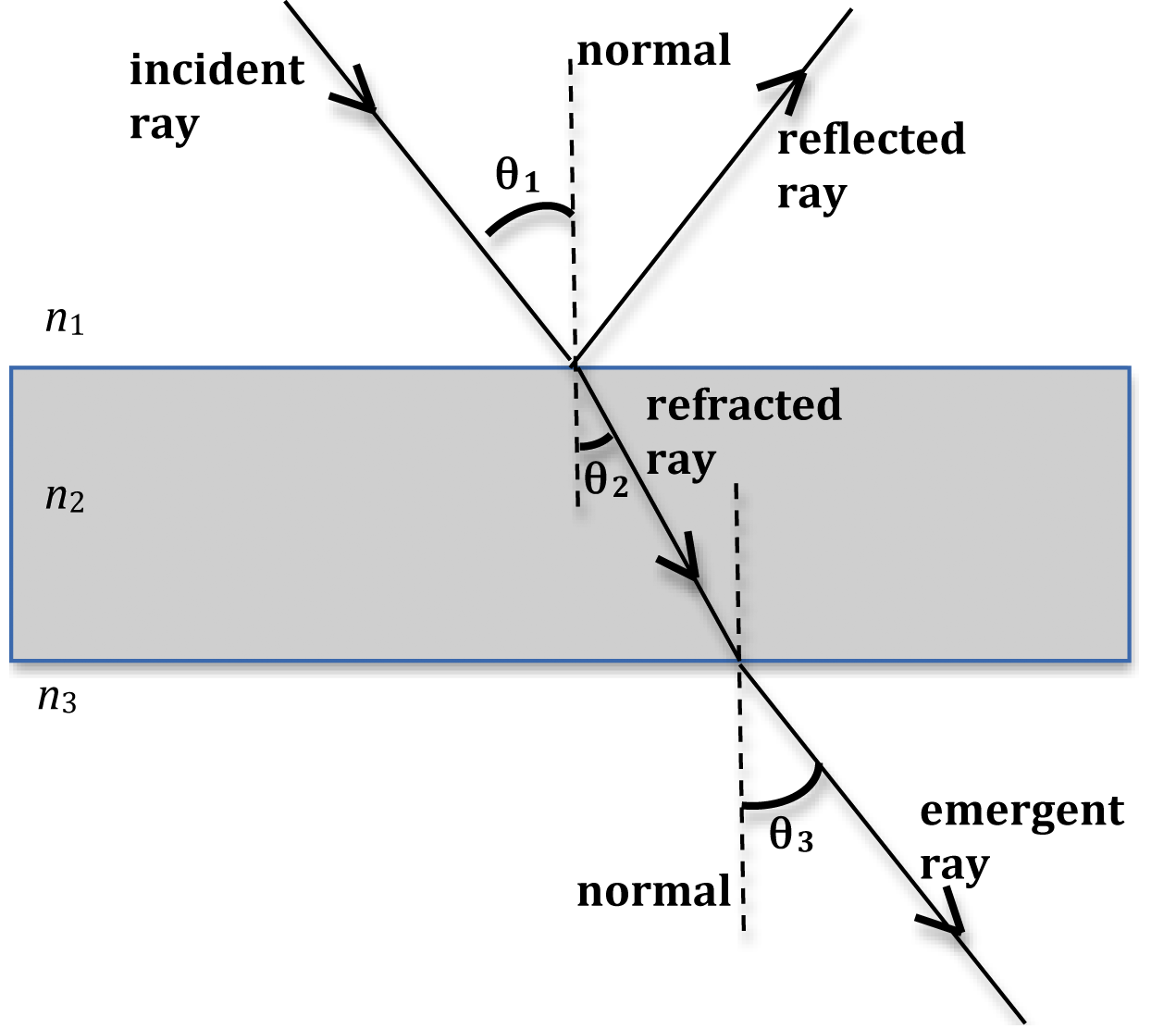
Lab 10 Reflection and Refraction
The reflection of light is simplified when light is treated as a ray. This concept is illustrated in Figure 16.3, which also shows how the angles are measured relative to the line perpendicular to the surface at the point where the light ray strikes it. This perpendicular line is also called the normal line, or just the normal.

Reflection of Light Definition, Types, Laws & More Leverage Edu
Definition: The Law of Reflection The angle at which a ray of light is incident on a surface is equal to the angle at which it is reflected, and on the opposite side of the normal. Mathematically, if the angle of incidence is 𝜃 and the angle of reflection is 𝜃 , then 𝜃 = 𝜃.

Reflection Of Light Leverage Edu
The law of reflection is illustrated in Figure 1.3.1 1.3. 1, which also shows how the angle of incidence and angle of reflection are measured relative to the perpendicular to the surface at the point where the light ray strikes. Figure 1.3.1 1.3. 1: The law of reflection states that the angle of reflection equals the angle of incidence—θ r.
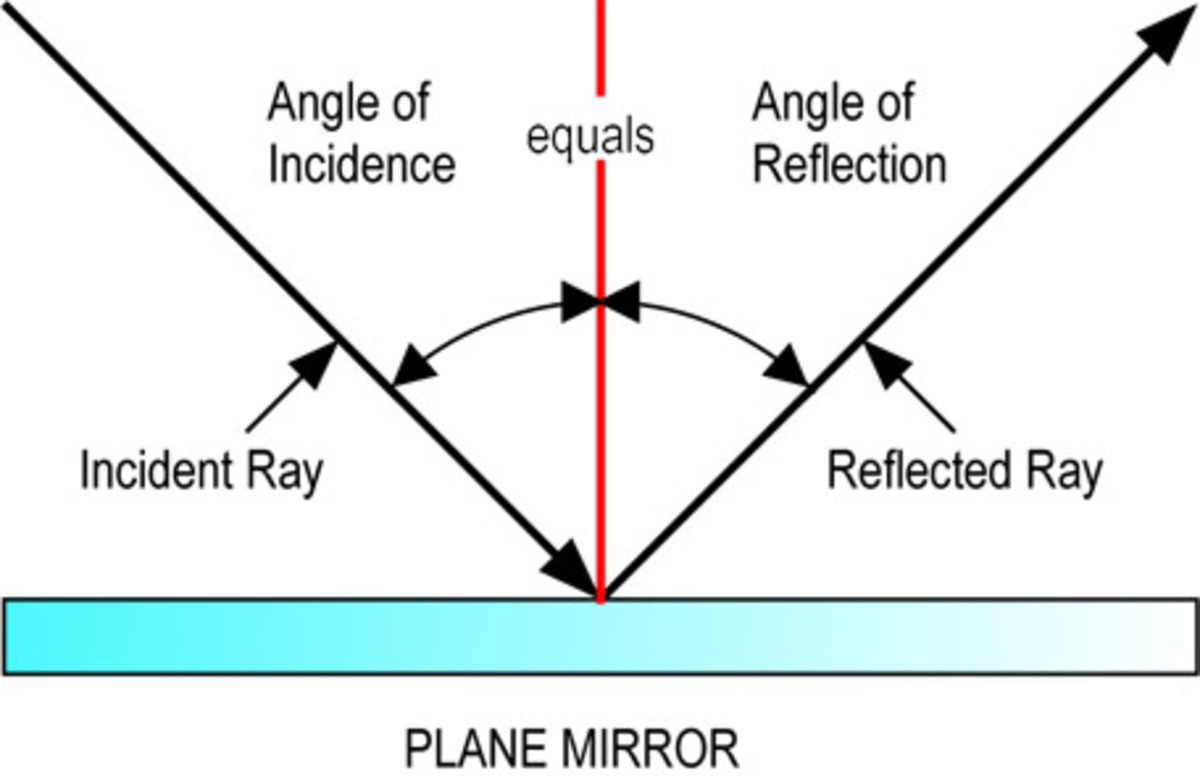
Reflection and Refraction of Light & It's Applications hubpages
The angle of reflection is measured between a ray of light which has been reflected off a surface and an imaginary line called the normal. The normal. , the normal is an imaginary line drawn on a ray diagram perpendicular to, so at a right angle to (90 ), to the boundary between two media. If the boundary between the media is curved then the.
:max_bytes(150000):strip_icc()/ReflectionLaw-5946c6dd5f9b58d58a2f2efc.png)
How Reflection Works in Physics
We use the diagram shown below to answer the questions. a) angle of incidence: i = 90 - 56 = 34 ° b)angle of reflection r = i = 34 ° (by the law of reflection) c) q = 90 - r = 90 - 34 = 56 ° d) i + r = 34 + 34 = 68 ° Example 2: A ray of light is reflected by two parallel mirrors (1) and (2) at points A and B.

Definition Diffuse Reflection Photokonnexion
The angle the ray is reflected is always the same as the angle the light hits the mirror, with both angles being measured from the normal. This is summarised by the law of reflection, which states.

Angle of reflection equals angle of incidence polizuniversal
Reflection of Light Diagram The figure below describes the reflection of light. Here, i is the angle of incidence and r is the angle of reflection. The perpendicular drawn on the reflecting surface is called the normal. The angles of incidence and reflection are measured in relation to the perpendicular line (normal) and the reflective surface.
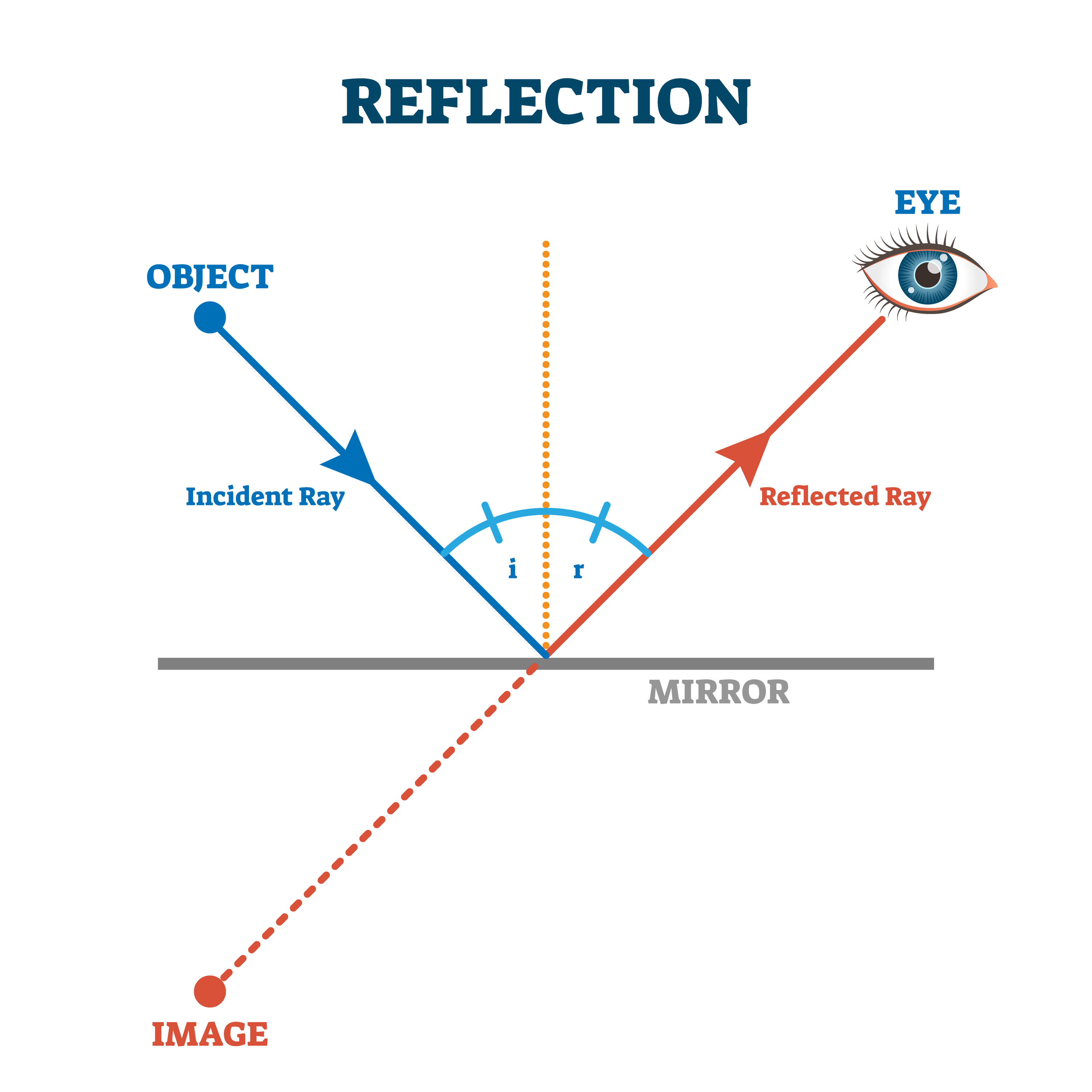
Specular and Diffusion ReflectionHow Light Reflects MooMooMath and Science
. The diagrams show a light ray being reflected at a plane mirror. The law of reflection states that: angle of incidence = angle of reflection For example, if a light ray hits a surface.
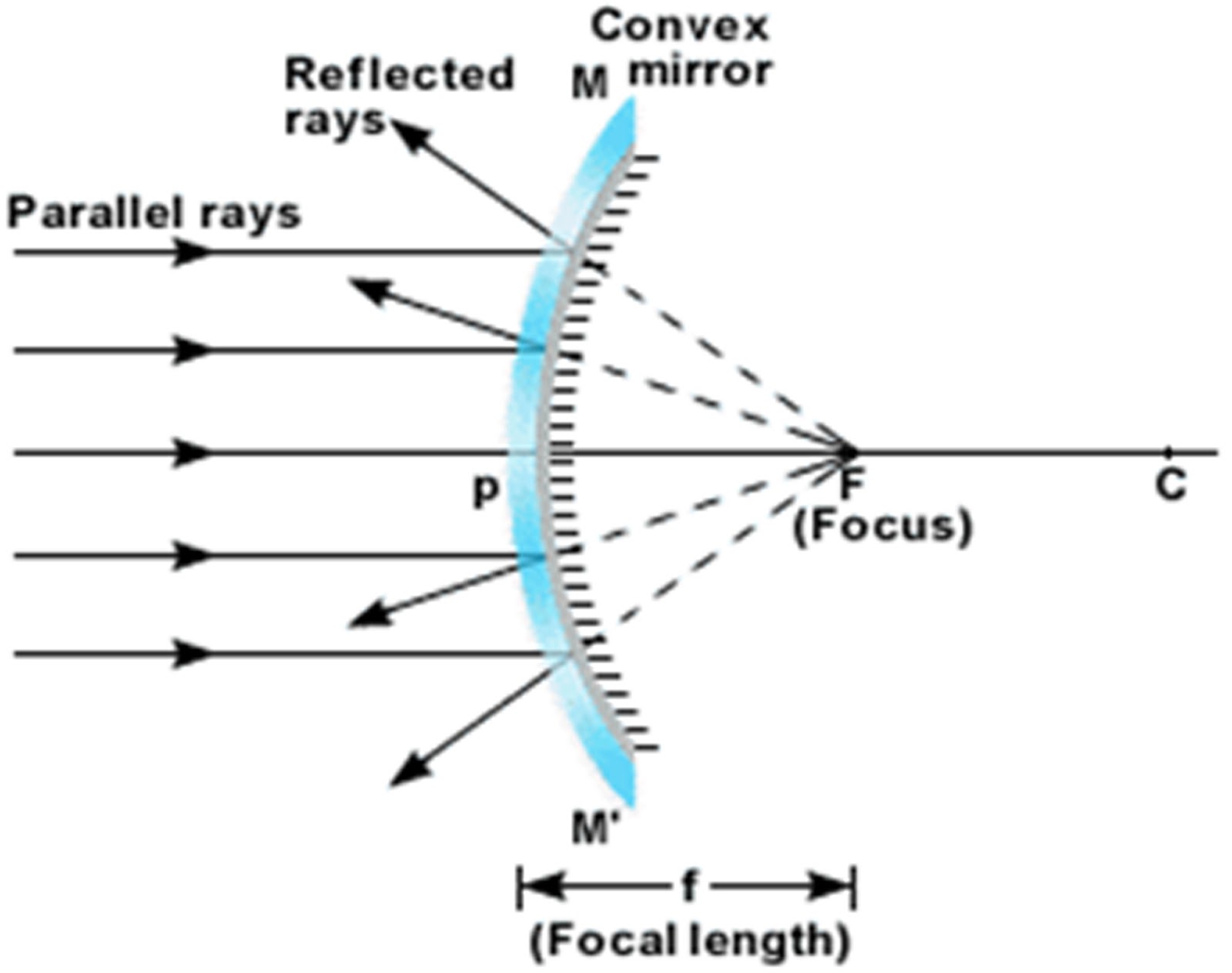
CHAPTER 10 LIGHT REFLECTION AND REFRACTION(CBSE CLASS 10) DEX ACADEMY
The diagram below illustrates the law of reflection. In the diagram, the ray of light approaching the mirror is known as the incident ray (labeled I in the diagram). The ray of light that leaves the mirror is known as the reflected ray (labeled R in the diagram).
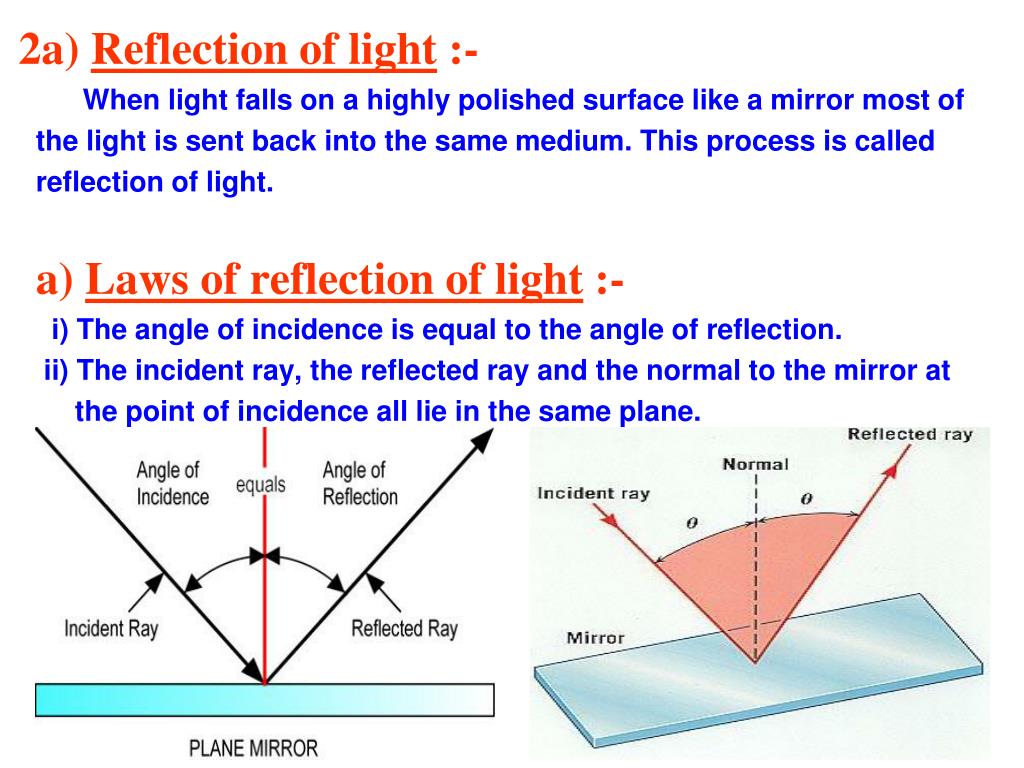
PPT CHAPTER 10 LIGHT REFLECTION AND REFRACTION PowerPoint Presentation ID259858
Reflection is when light bounces off an object. If the surface is smooth and shiny, like glass, water or polished metal, the light will reflect at the same angle as it hit the surface. This is called specular reflection. Diffuse reflection is when light hits an object and reflects in lots of different directions. This happens when the surface.

Reflection, Refraction and Diffraction The Science and Maths Zone
The ray nature of light is used to explain how light reflects off of planar and curved surfaces to produce both real and virtual images; the nature of the images produced by plane mirrors, concave mirrors, and convex mirrors is thoroughly illustrated.
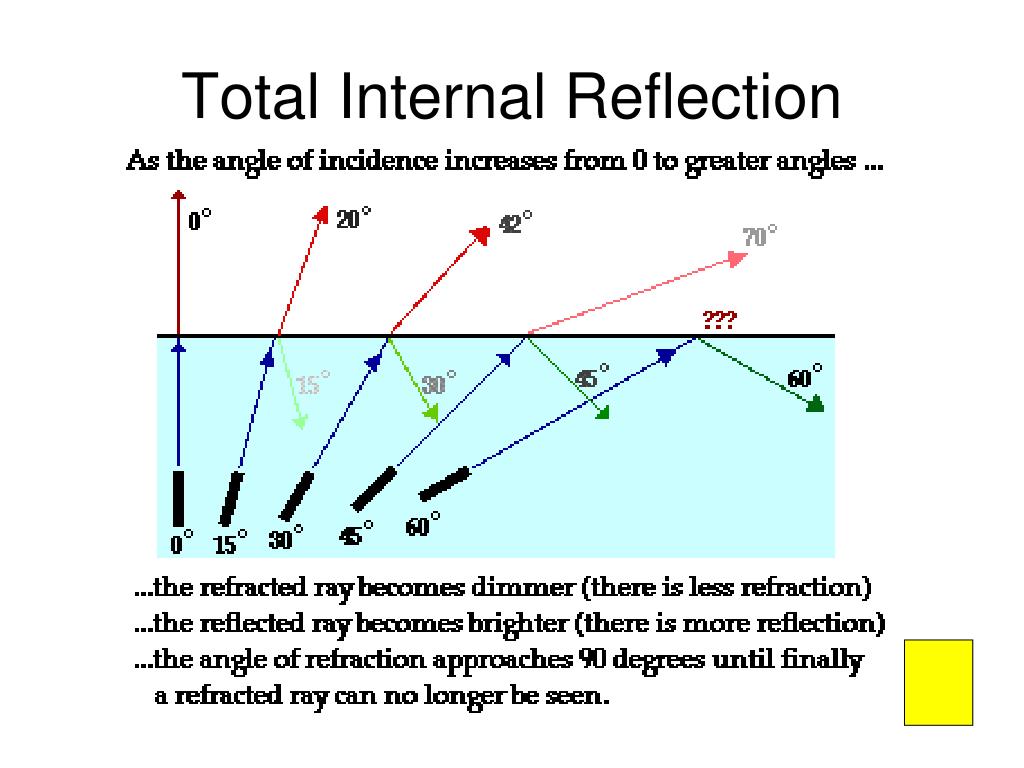
PPT Optics Reflection, Refraction & Total Internal Reflection PowerPoint Presentation ID3277716
The reflection and refraction of light 7-27-99 Rays and wave fronts.. In a ray diagram, rays of light are drawn from the object to the mirror, along with the rays that reflect off the mirror. The image will be found where the reflected rays intersect. Note that the reflected rays obey the law of reflection.
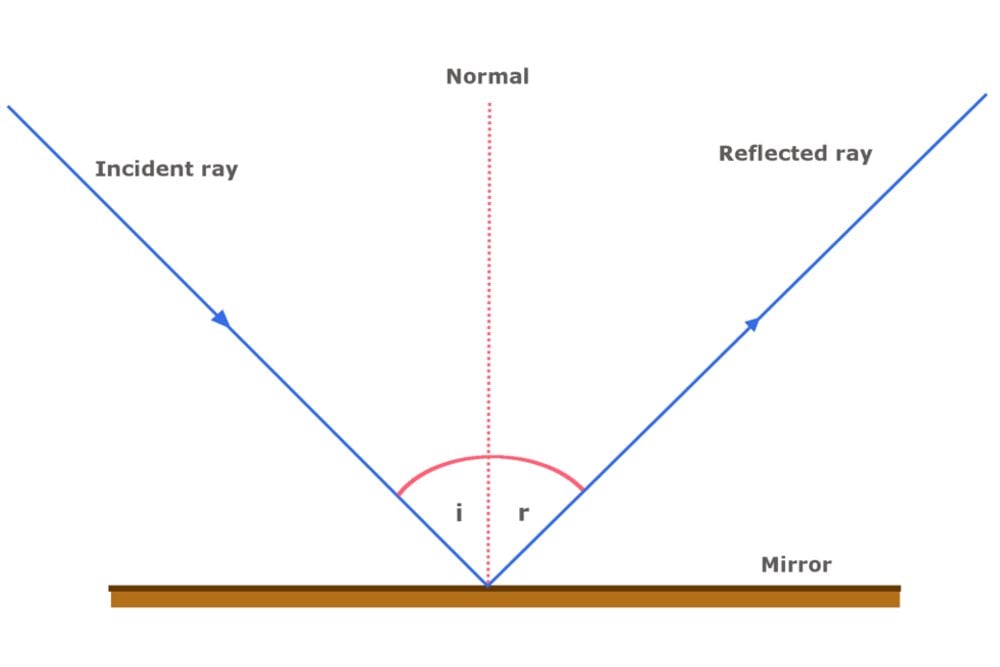
What Is The Law Of Reflection Definition And A Simple Explanation
The reflection of light 7-25-00 Sections 23.1 - 23.3 Rays and wave fronts.. Consider an object placed a certain distance in front of a mirror, as shown in the diagram. To figure out where the image of this object is located, a ray diagram can be used. In a ray diagram, rays of light are drawn from the object to the mirror, along with the.
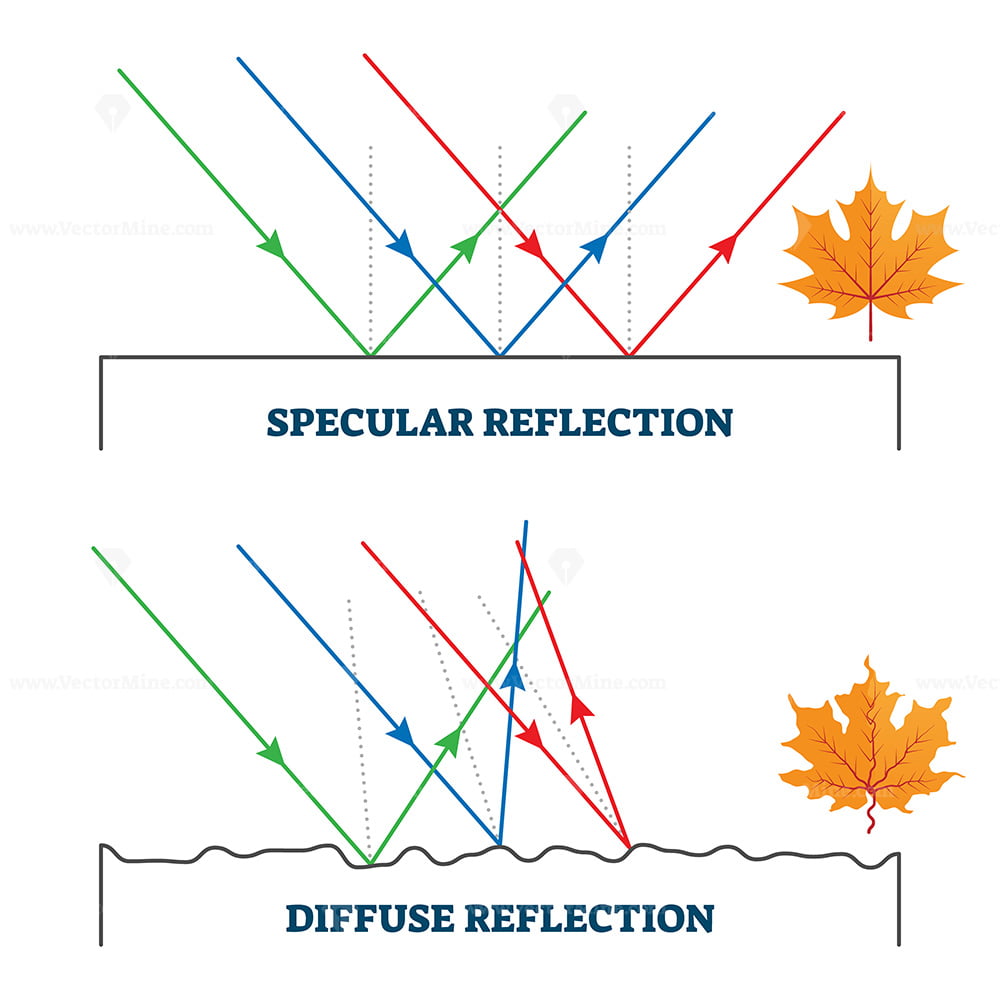
Specular and diffuse reflection, vector illustration diagram VectorMine
When a ray of light falls on any object (polished, smooth, shiny object), light from that object bounces back those rays of light to our eyes and this is known as "Reflection" or "Reflection of Light". This phenomenon is what enables us to look at the world around us based. Before, after and during reflection light travels in a straight line.